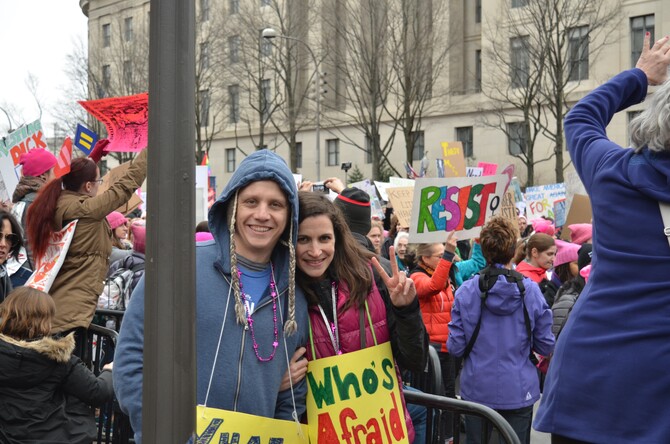Penn’s Dawn Teele Studies What Factors Lead Women to Run for Political Office
Since the 2016 election, scores of women across the nation have enlisted in political campaign training programs like Emerge America and Ready to Run. One researcher at the University of Pennsylvania is gathering their data to understand why some women throw their hats in the ring while others don’t.
Dawn Teele, an assistant professor of political science in the School of Arts & Sciences at Penn, examines the economic and psychological factors that drive women to seek political office.
In a new research project, “Nudging Women to Run,” Teele, along with scholars at Rutgers University, Yale University and the University of California, Berkeley, surveyed alumnae of women’s campaign-training programs and is in the process of designing experimental innovations to encourage women to launch political campaigns.
Within five years of participating in a six-week Emerge America training program, about 50 percent of alumnae have run for or been appointed to political office.
“Converting a group of ‘interested’ women into actual political candidates is extremely important for the representation of women all over the country and in all levels of government,” Teele says. “It’s amazing to see how many women go through the training, which costs a lot of time and money, but do not run.”
To understand the structural mechanisms that prevent interested, qualified women from running, Teele’s survey asked the group about deterrents such as financial issues, media bias, donor networks and party connections.
If a potential candidate is a single breadwinner who is unable to give up her income in order to run during an election, that’s a major obstacle that probably cannot be overcome by adjustments to training programs. However, Teele says, smaller issues might be remedied with interventions.
“One of the most-cited reasons as to why Emerge America women don’t run for office is because they have not been able to find a campaign manager,” Teele says. “If a woman doesn’t run because she had no success finding a campaign manager, or has trouble tapping into fundraising networks to secure seed money, marginal changes might make a difference in the ‘conversion rate’ of these programs.”
Gender-related psychological factors may influence a woman’s decision whether or not to run and Teele plans to look at that, too.
“Gendered pathways into politics start very early on. In school, boys are encouraged to think about politics, whereas girls are not,” Teele says, adding that the same kinds of principles apply when women are seeking a new job or a promotion.
“Women will generally apply for a position only if they meet every qualification, whereas men will go for it no matter what,” Teele says. “We plan to look at these kinds of psychological limitations, too, to see if different presentations of candidate histories change the rate of candidacy.”
Teele is in the midst of organizing an academic conference for the fall that will bring the leaders of women’s campaign-training programs together with scholars and policy-oriented organizations for a brainstorming session.
Through sharing ideas, the conference is designed to get attendees thinking about experiments that can be done within the programs to “nudge” participants forward.
While the campaign-training organizations continue to collect data, Teele says that it will be a while before they see any tangible results.
“We have to wait at least two electoral cycles before implementing any programmatic changes. But, we’ll continue to gather data and in one year we will try experimental interventions in some of the programs,” Teele says. “It’s a long-term project because it takes time for elections to happen and for posts to become open. We have to be patient.”








